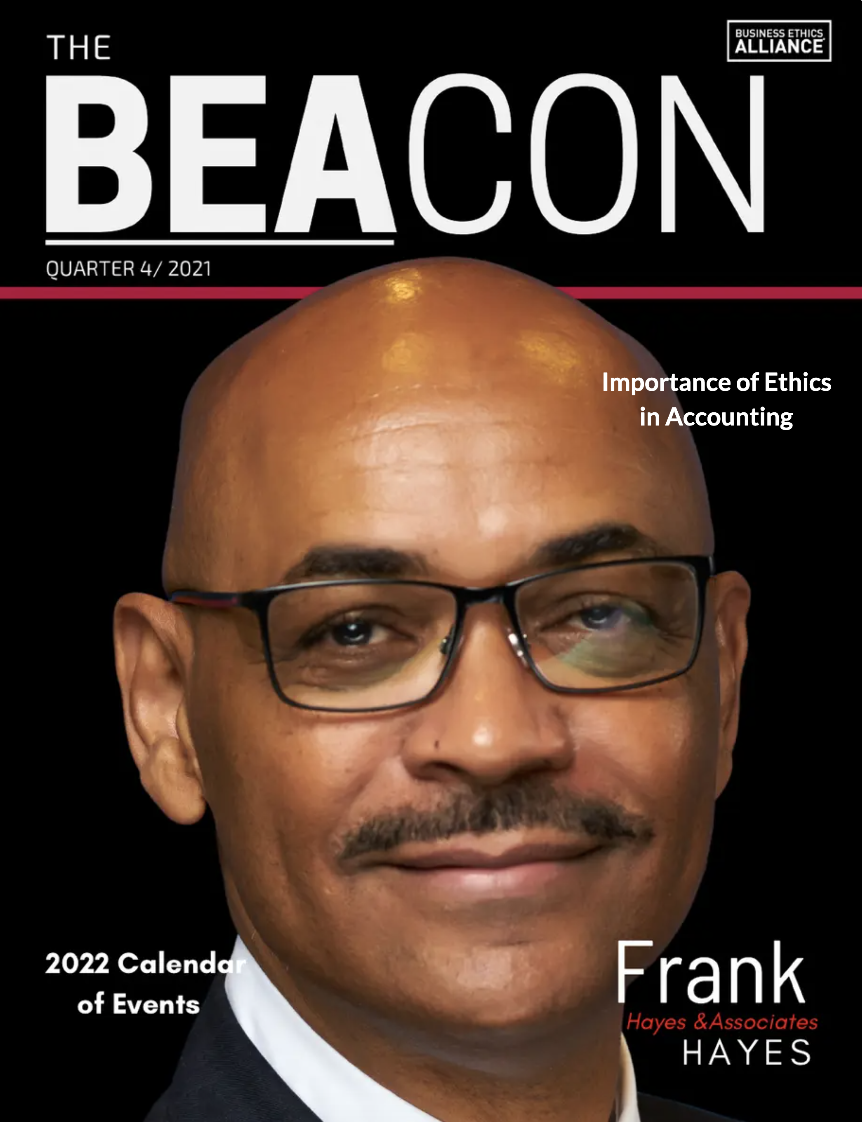The ongoing COVID-19 pandemic has raised challenges for us all. In the world of business, day-to-day tasks and interactions have evolved. Communication with team members and clients has become remote meetings, creating a new set of challenges for businesses and their clients. Frank Hayes, President of Hayes & Associates, stresses the importance of ethics in accounting in The Beacon, Business Ethics Alliance Magazine.
“Business leaders must discipline themselves to continue to make ethical decisions based on their core values.” – Frank Hayes.
Professional Skill
Every business is expected to exercise ethical behavior and practices. Those dealing with money and other sensitive personal and company information must adhere to strict ethics and integrity standards. To gain and retain the trust of clients, co-workers, and business partners, this code of ethics is crucial to accounting businesses.
Accounting is a detail-oriented career that requires knowledge and skills to do the job correctly and efficiently. Accounting mistakes lead to problems with investors, business partners, finance lenders, and the Internal Revenue Service. Therefore, anyone working in accounting must understand their job requirements and have the skills to execute them properly.
Integrity
Integrity covers a lot of different ethical standards that include professionalism and honesty in all circumstances. Professionalism is a standard that goes beyond the office. Whether at a networking event or a party, maintaining a professional demeanor is good business. The ongoing pandemic has raised uncertainty for many companies. Being honest and transparent with team members and clients has never been more critical.
Communication
“The use of virtual technology has changed the way we work.” – Frank Hayes.
Communication is the key to any friendly or romantic relationship, but it is just as important in business relationships. While virtual meetings have allowed team members and clients to communicate remotely throughout the pandemic, virtual communication is a new concept to many people. Work performance turnovers have increased for many businesses due to this new way of communication. It is essential that this virtual environment does not limit contact with clients.
Organizational Culture
“Fortunately, we were equipped from a technology standpoint to allow staff to work from home, but our cohesiveness as a team was impacted negatively.” – Frank Hayes.
Remaining a team during the time of social distancing can be challenging. Still, it is essential to stabilize “normal” organizational culture in the workplace… even when it is at home. To address this, the team at Hayes hosted virtual “Happy Hours” with staff to allow our employees to dialogue around any issues they may be facing. In addition, it is crucial to address ethics focusing on day-to-day interactions and behavior for employees. Employee ethics apply to people at all levels of the organization and help determine success.
The pandemic has reshaped the way businesses work, but it has not changed the importance of ethics in organizations. Professionalism, integrity, communication, and organizational culture are vital to the ethical success of any business.





